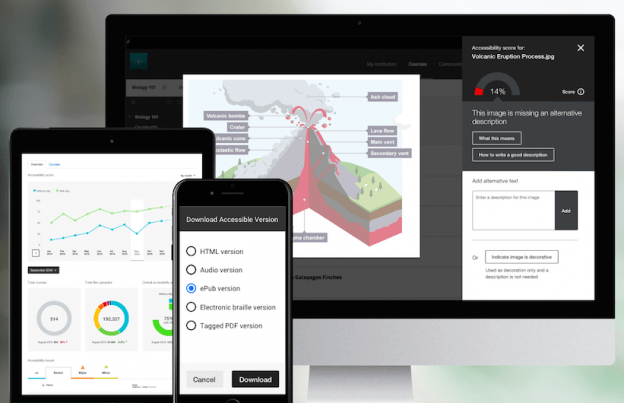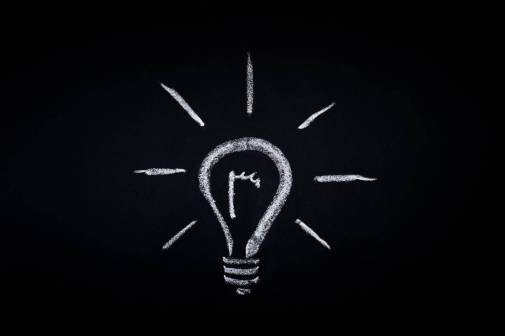Blackboard announces accessibility solution for major LMS platforms

Students may now have more accessibility options for course content thanks to Blackboard Ally, a content accessibility solution that will soon be available for use with major learning management systems. Education technology product developer Blackboard announced the general availability of the solution Thursday during the sixth annual Global Accessibility Awareness Day.
Blackboard Ally scores uploaded course content on an accessibility checklist and uses machine-learning algorithms to convert content automatically into alternative forms including Semantic HTML, ePub, electronic Braille and audio.
The alternative forms are immediately available to all students in the course, increasing access for students with disabilities or different learning preferences.
“We recognize that providing access to accessible content can be a significant challenge for both instructors and institutions,” Ally Nicolaas Matthijs, project manager for Blackboard Ally, said in a statement. “The goal with Blackboard Ally is to increase awareness of course content accessibility and provide support for teaching students of all learning styles and abilities.”
The product functions as an supplement for existing LMS platforms and is currently available in Canvas and the latest Blackboard Learn with the Original experience. Blackboard Ally will also be available with the release of MoodleRooms 3.2 later this year, and Blackboard plans to expand to additional platforms. More than 30 institutions are working with Blackboard to pilot the solution, said Lynn Zingraf, a senior director at the company.
Blackboard says this solution is innovative in that it focuses on creating alternative content rather than emphasizing systems used by instructors and students. This focus on content can help institutions comply with Department of Justice rulings that require products and content to work for students with accessibility issues, according to Zingraf.
Zingraf said many institutions currently use manual processes in which a student requests alternative content through an accessibility or student services department, which then manually creates more-accessible versions of content.
“Ally does this automatically, so as soon as it’s loaded into the LMS, it does its thing, and then the alternative formats are available,” Zingraf said. “So there’s really no wait for the student, and typically those manual processes can just take days or longer, and the student typically would fall behind, as they’re waiting for that alternative content.”
The product also provides accessibility scores for all uploaded content, identifying problems and providing guidance to instructors on how to address them. It generates institution-wide reports on course content accessibility, allowing institutions to capture and track the state of accessibility in their classrooms.
Christopher Phillips, electronic and IT accessibility coordinator at Utah State University, said his institution currently uses Blackboard Ally for institutional feedback, though it has yet to test the features available to students.
“One of the biggest things that Ally has given us is a really good understanding of how well we’re doing or where improvements are needed across the accessibility of our courses, and that’s kind of helped to drive conversations and initiatives to recognize that there is a need for greater awareness around accessibility,” Phillips said.




